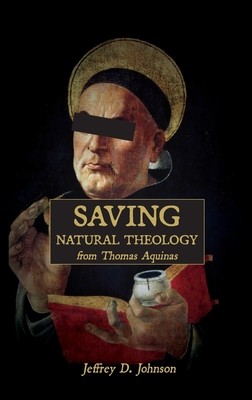
- We will send in 10–14 business days.
- Author: Jeffrey D Johnson
- Publisher: Free Grace Press LLC
- ISBN-10: 1952599466
- ISBN-13: 9781952599460
- Format: 12 x 19 x 0.6 cm, minkšti viršeliai
- Language: English
- SAVE -10% with code: EXTRA
Reviews
Description
In this much-anticipated follow-up to The Failure of Natural Theology, Jeffrey D. Johnson seeks to separate the reality of natural theology from the Greek philosophy-laden counterfeit advanced by Thomas Aquinas and others.
Johnson endeavors to show how classical apologetics became tainted with the introduction of Greek philosophy. Though Aquinas was not the first to seek to syncretize the pantheistic notions flowing out of Athens with the ontologically distinct and self-contained God who personally revealed himself in Jerusalem, he is one of the most influential and well-known perpetrators of this school of thought. He and pagan philosophers throughout the ages have suppressed, twisted, and perverted what has been communicated in natural revelation. They rejected what they knew in their hearts by attempting to formulate their own explanation of God and instead created an abstract being that is not the personal caretaker and judge of the universe. Such a god is not the God of natural revelation, and in fact, is no God at all.
Thus, in this short treatise, Johnson presents the problems in Aquinas's version of natural theology. He not only explains why Greek philosophy is unsavable but also points to the apostle Paul's rejection of it. Finally, he discusses various Reformers who have rejected Aquinas's natural theology.
Ultimately, Johnson shows in Saving Natural Theology from Thomas Aquinas that if natural theology can be saved (and he believes it can be), it must be saved from Thomas Aquinas.
- Author: Jeffrey D Johnson
- Publisher: Free Grace Press LLC
- ISBN-10: 1952599466
- ISBN-13: 9781952599460
- Format: 12 x 19 x 0.6 cm, minkšti viršeliai
- Language: English English
In this much-anticipated follow-up to The Failure of Natural Theology, Jeffrey D. Johnson seeks to separate the reality of natural theology from the Greek philosophy-laden counterfeit advanced by Thomas Aquinas and others.
Johnson endeavors to show how classical apologetics became tainted with the introduction of Greek philosophy. Though Aquinas was not the first to seek to syncretize the pantheistic notions flowing out of Athens with the ontologically distinct and self-contained God who personally revealed himself in Jerusalem, he is one of the most influential and well-known perpetrators of this school of thought. He and pagan philosophers throughout the ages have suppressed, twisted, and perverted what has been communicated in natural revelation. They rejected what they knew in their hearts by attempting to formulate their own explanation of God and instead created an abstract being that is not the personal caretaker and judge of the universe. Such a god is not the God of natural revelation, and in fact, is no God at all.
Thus, in this short treatise, Johnson presents the problems in Aquinas's version of natural theology. He not only explains why Greek philosophy is unsavable but also points to the apostle Paul's rejection of it. Finally, he discusses various Reformers who have rejected Aquinas's natural theology.
Ultimately, Johnson shows in Saving Natural Theology from Thomas Aquinas that if natural theology can be saved (and he believes it can be), it must be saved from Thomas Aquinas.


Reviews